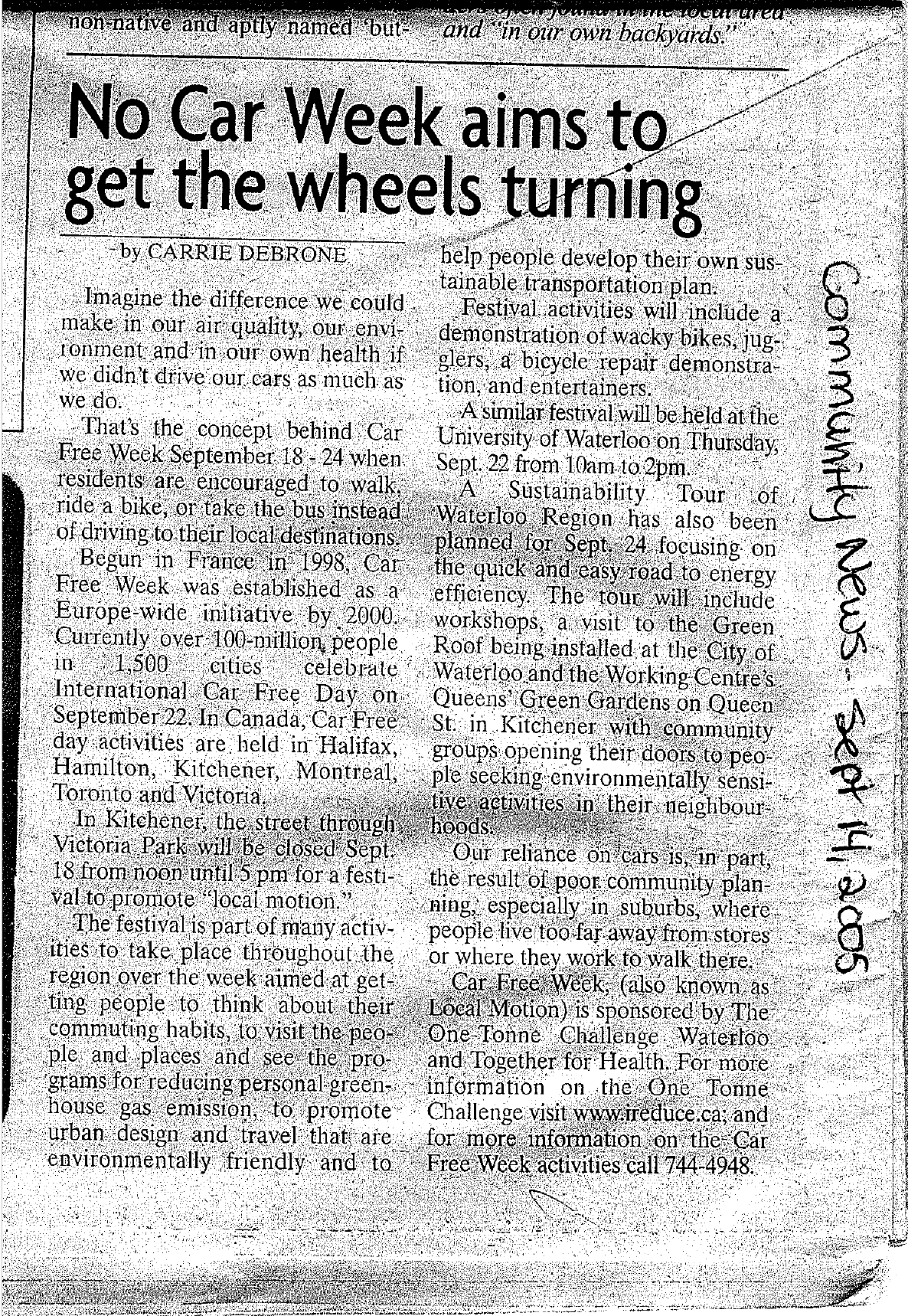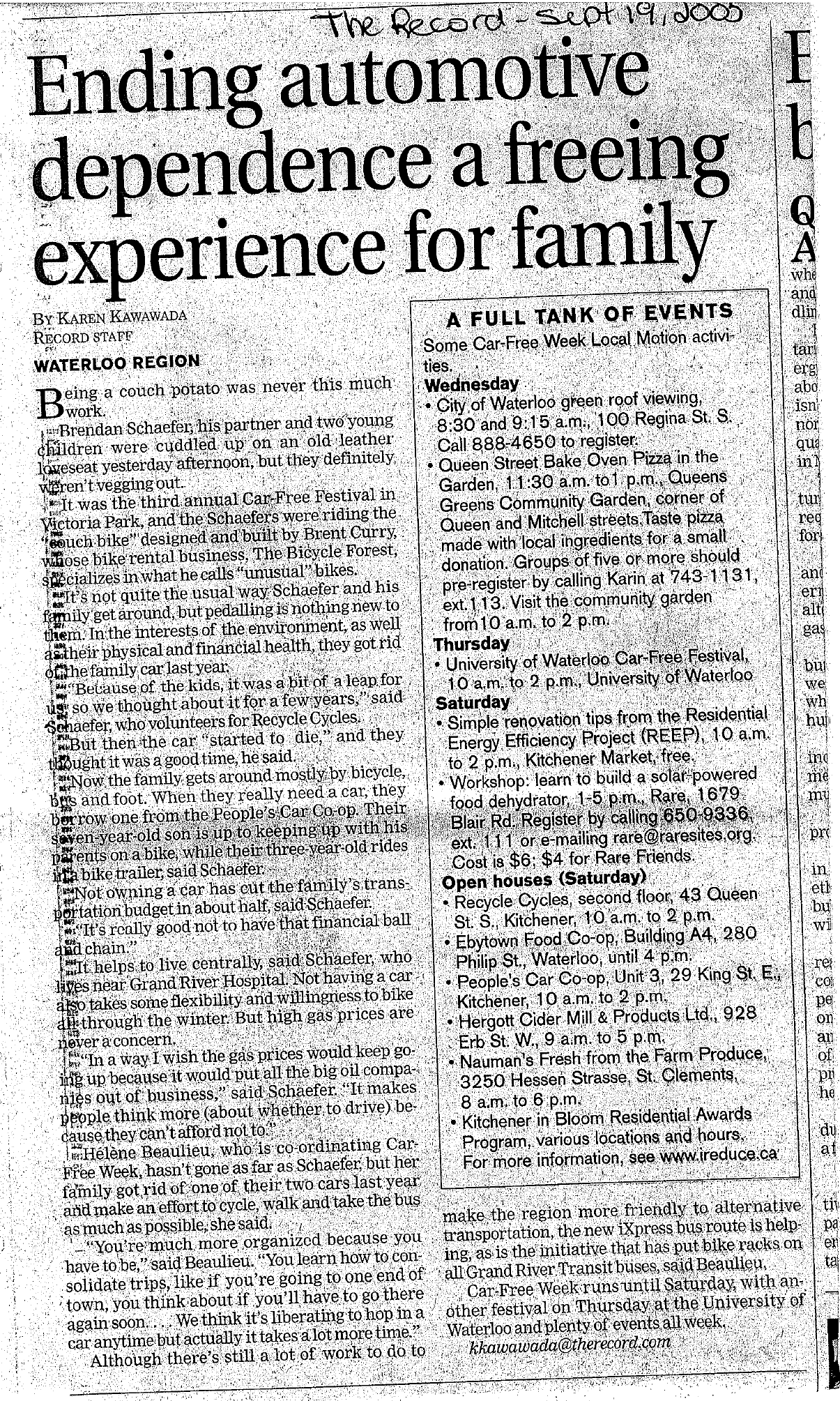2000s: COMMUTER CHALLENGE AND MORE
2000-2008
Car Free Day Festival
WPIRG helped promote the first international Car Free Day on September 21st and “KW’s biggest ever critical mass,” a day “to envision the kind of world we might live in if spaces currently dominated by cars were available for people-friendly, community oriented events, a world free of the air and noise pollution cars cause, and free of the financial and human costs of auto-dominated culture.”
“Begun in France in 1988, Car Free Week is now celebrated by 100 million people in 1,500 cities around the world.”

“The festival is part of many activities to take place throughout the region over the week aimed at getting people to think about their commuting habits, to visit the people and places and see the programs for reducing personal greenhouse gas emission, to promote urban design and travel that are environmentally friendly and to help people develop their own sustainable transportation plan.”
“Everyone uses transportation, whether it’s an electric wheelchair or the city bus, but few people think of how modes of transportation shape the quality of life in this region. Overuse of automobiles for daily travel is a key source of smog and the greenhouse gases linked to climate change. The reliance on cars to get around has made schoolyards unsafe, contributes to urban sprawl, and reduces face-to-face contact on our streets.”
2001-2005
Commuter Challenge
Between 2001 and 2005, WPIRG helped promote Commuter Challenge week each June by emphasizing sustainable modes of transportation such as walking, cycling, transit and carpooling.
“Thanks to [the efforts of the following organizations], we all benefited from cleaner air! 34,341 kg of greenhouse gas emissions were kept from the air we breathe.”




